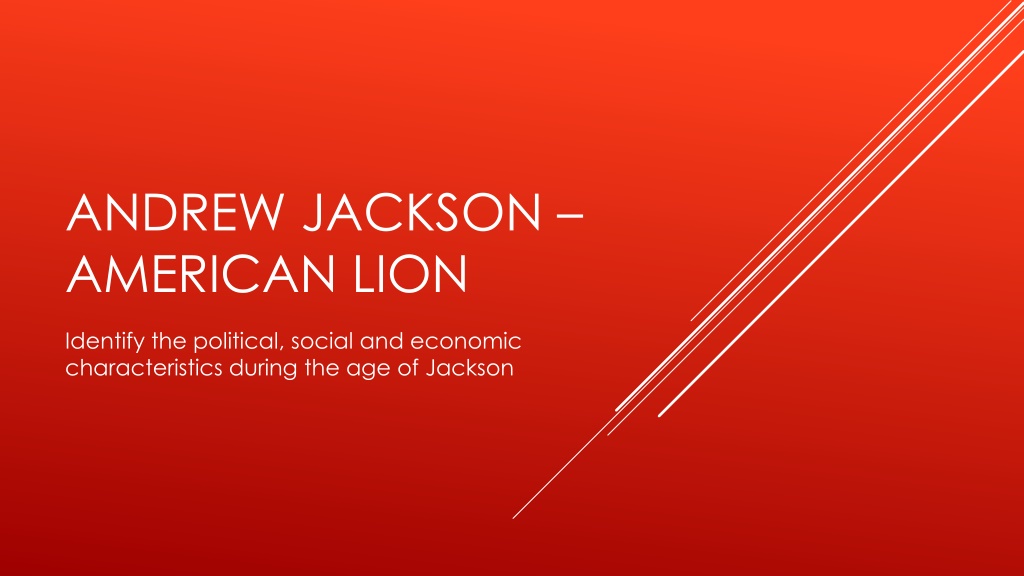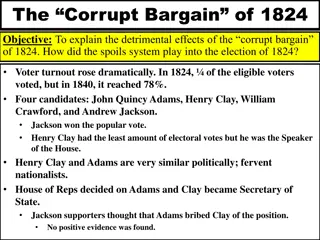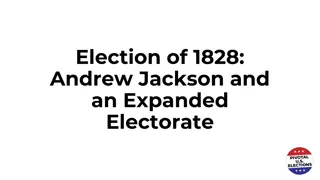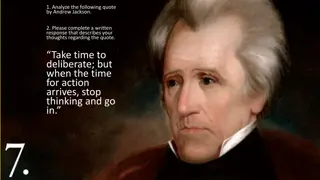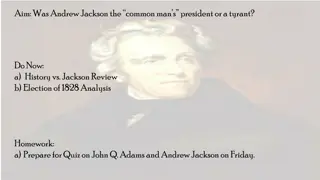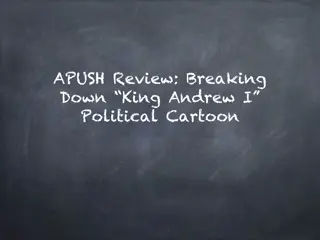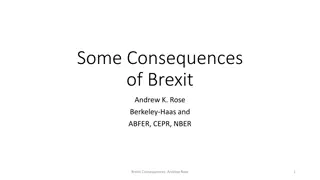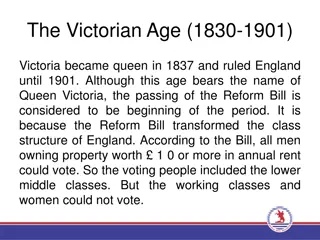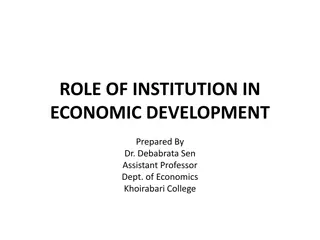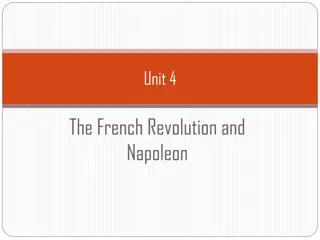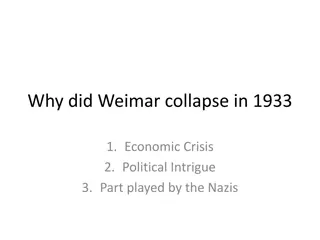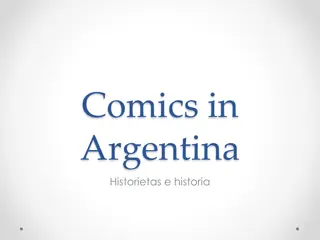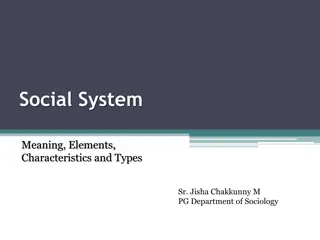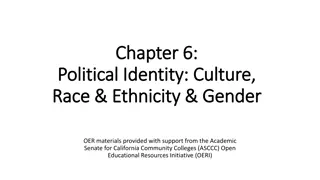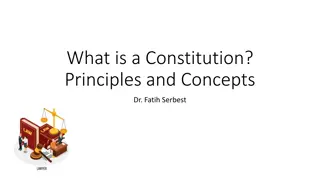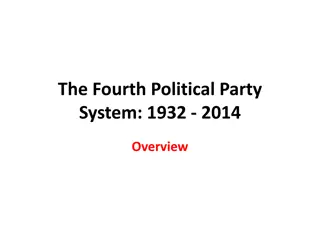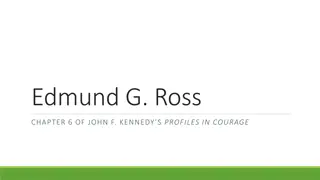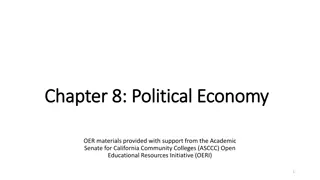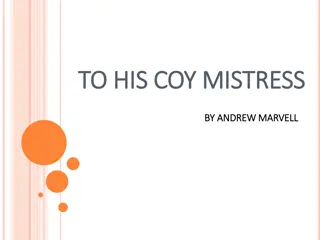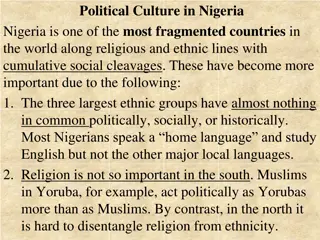Political, Social, and Economic Characteristics in the Age of Andrew Jackson
Andrew Jackson, known as the "American Lion," exemplified a unique blend of political, social, and economic characteristics during his time. Jackson, the first president not from Massachusetts or Virginia, grew up in Tennessee as an orphan and had a tough childhood. He fought in the War of 1812 and held strong anti-British sentiments. As a Democrat, he supported the idea of all white men being able to vote and opposed banks and global trade that favored the elite. Jackson advocated for tariffs to protect American industry and was involved in the development of the American System, which aimed to enhance infrastructure and promote domestic production. His legacy reflects a complex figure who championed the rights of the common man while engaging in controversial actions.
Download Presentation

Please find below an Image/Link to download the presentation.
The content on the website is provided AS IS for your information and personal use only. It may not be sold, licensed, or shared on other websites without obtaining consent from the author. Download presentation by click this link. If you encounter any issues during the download, it is possible that the publisher has removed the file from their server.
E N D
Presentation Transcript
ANDREW JACKSON AMERICAN LION Identify the political, social and economic characteristics during the age of Jackson
First President to be from somewhere other than Massachusetts or Virginia Did not grow up wealthy (defeated John Quincy Adams, son of John Adams) to become president Killed people in duels (1 man after he shot Jackson in the chest), possibly involved in close to 100 of them ANDREW JACKSON
Grew up in Tennessee as an orphan Father died cutting down trees, mother died nursing during the Revolution. Two brothers also died during the Revolution You might call him a Hill Billy poor backwoods of the nation Volunteered for the Revolutionary War at the age of 13 Was captured and had part of his right ear cut off CHILDHOOD
Fought the British during the war of 1812 He hated them and felt they were responsible for the death of his mother and 2 brothers Defeated them at the Battle of New Orleans After the war was official over Peace, above all things, is to be desired, but blood must sometimes be spilled to obtain it on equable and lasting terms. Even asked for the President to raise an army and let him invade England Was tasked with stopping Seminole raids into Georgia, chased them into Spanish Florida. When in Spanish Florida took over the Spanish capital and claimed Florida for the US. GENERAL
All white men should be able to vote no more property requirements Opposed banks and global trade that benefited the elite few. Wanted the Common-man to benefit from government rules and laws Tariffs to tax imports The idea was to make foreign goods more expensive, so you would have to buy American. JACKSON DEMOCRAT
The American System was a plan to 1) build roads and canals 2) Increase tariffs (tax on imports) to make foreign goods more expensive 3) Create a national bank Developed by Henry Clay The North loved this plan it feed their cities with cheap raw materials and made Northern produced goods in demand The West and the South were to produce cheap raw materials for Northern factories Southern Plantation owners hated it THE AMERICAN SYSTEM & TARIFFS
SOUTHERN OPINION OF TARIFFS Southern raw materials were then undervalued European countries put a tariff on the raw materials and would not buy them Only option was to sell them to factories in North These policies created super wealth elite business and factory owners
South Carolina demanded an end to the tariffs If tariffs where not ended, then they felt that the Union was no longer supporting their best interest and that they could leave the United States Tariffs were not lifted, and South Carolina created a proclamation to declare the United States and the Constitution Null and Void NULLIFICATION CRISIS
Please give my compliments to my friends in your state, he told a visiting South Carolina legislator, and say to them that if a single drop of blood shall be shed there in opposition to the laws of the United States, I will hang the first man I can lay my hand on engaged in such treasonable conduct, upon the first tree I can reach. ANDREW JACKSON His response to the Nullification Crisis
Jackson said that act was treasonous and that if South Carolina did not drop the matter he would send the Army to South Carolina and treat them like traitors..... South Carolina took Jackson seriously and backed down The tariffs were lowered Southern States knew now that they did not have political power to influence the government NULLIFICATION CRISIS SOLVED?
TRUMP VS JACKSON President Trump has made an assertion that he is similar to Former President Andrew Jackson Including: populism, standing for the common- man, tariffs, and democracy Compare and Contrast the two
The Indian Removal Act Agreement between United States and Southern Native American Tribes The Native Americans would give up lands in the South and would be given lands out West to settle, lands that would never be taken away Helped by the 1st Gold Rush in America "Georgia in 1929" Most Native Americans agreed and left the Cherokees resisted and were moved forcibly = "The Trail of Tears" JACKSON LAST BATTLE WITH NATIVE AMERICANS
Lyncoya, Jackson's Native American Child ANDREW JACKSON A DIFFICULT MAN
